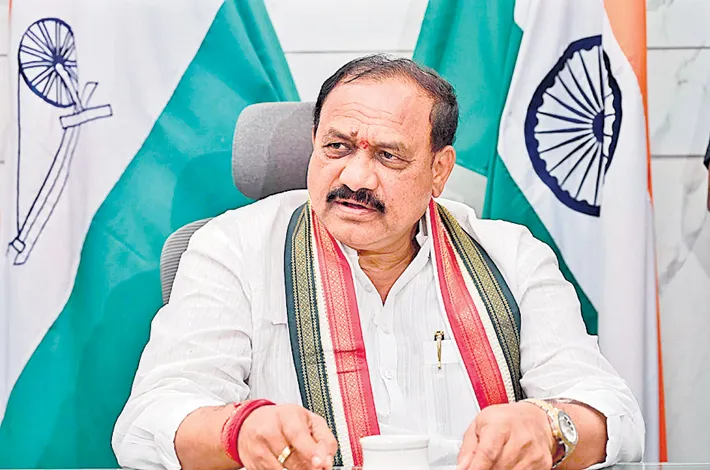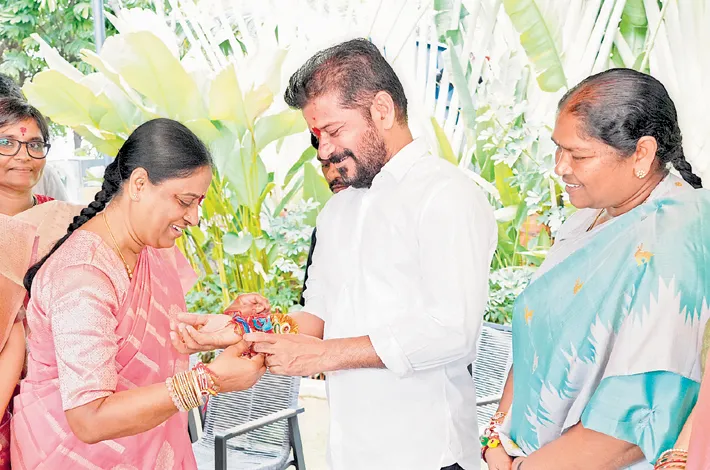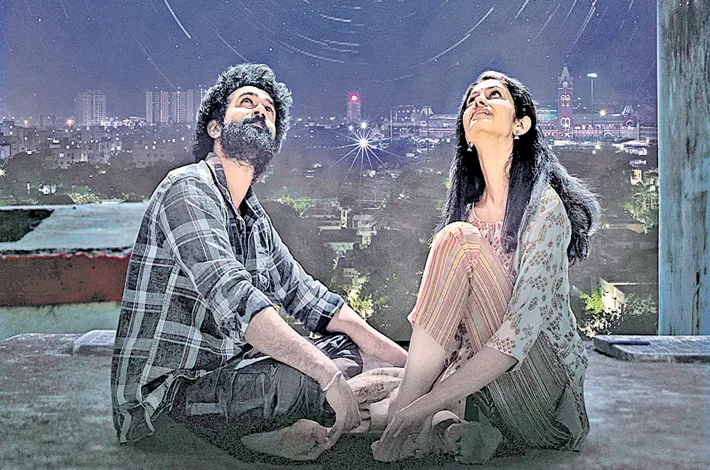A Melody of Hearts
12-06-2025 12:00:00 AM

In the quaint town of Nainital, nestled among mist-kissed hills, Ravi stood at the edge of his family’s sprawling estate, gazing at the lake that shimmered like a sapphire under the autumn sun. A man of quiet resolve, Ravi had returned from Delhi after years of self-imposed exile, carrying the weight of a broken heart and a promise to his late sister, Meena.
She had left behind three children—Rama, Vinod, and Sanju—orphans now, wild and untamed, raised by their stern grandfather, Rai Sahib. Meena’s last wish was for Ravi to guide her children, to be the father they never had. But Ravi, a poet and dreamer, felt ill-equipped for the task.
The estate was a fortress of discipline, ruled by Rai Sahib, a retired colonel who believed love was a luxury and children needed iron-handed control. The children, resentful and mischievous, had driven away every tutor hired to tame them. Rama, the eldest at sixteen, was sharp-tongued and fiercely protective of her younger brothers. Vinod, twelve, was the mastermind of pranks, and Sanju, barely seven, followed his siblings with unwavering loyalty. Ravi’s arrival was met with suspicion. “Another tutor to break us?” Rama scoffed, her dark eyes flashing defiance.
Ravi, however, was no ordinary tutor. He saw through their rebellion, glimpsing the pain of loss beneath their bravado. Instead of rules, he offered stories. Instead of punishment, he shared songs. On his first evening, he sat by the lake with his harmonium, playing a soft tune from an old Hindi film. The children, hiding behind the trees, were drawn to the melody like moths to a flame. Sanju, the youngest, crept closer, his eyes wide with wonder. “Why do you play such sad songs?” he asked.
“They’re not sad,” Ravi replied, his voice gentle. “They’re full of love, waiting for someone to hear it.” Rama, overhearing, rolled her eyes but lingered, her heart stirring despite herself.
Among the household was Sujata, the children’s governess, hired a month before Ravi’s arrival. She was a vision of grace, with kohl-lined eyes and a smile that hid a quiet sorrow. Sujata had come to Nainital to escape her past—a broken engagement to a man who chose wealth over love. Her days were spent trying to rein in the children, her nights lost in books and memories. Ravi’s arrival unsettled her. His kindness, his music, and the way his gaze lingered a moment too long made her heart race, a feeling she had sworn to bury.
Their paths crossed often—by the lake, in the library, or during the children’s lessons. Ravi noticed how Sujata’s laughter softened the children’s edges, how she braided Rama’s hair with patience, or humored Vinod’s endless questions. One evening, as they supervised the children’s study hour, Ravi handed her a book of poetry. “You read Tagore,” he said, noticing her worn copy. “He writes of love like it’s a river—wild, unstoppable.”
Sujata blushed, her fingers brushing his as she took the book. “And you? What do you write about?”
“Things I’ve lost,” he said softly, “and things I hope to find.”
The children, sensing a shift, began to warm to Ravi. He taught them through games and stories, weaving lessons into laughter. Rama, once hostile, started confiding in him, her sharp edges softening. Vinod abandoned his pranks, eager to impress Ravi with his quick wit. Sanju clung to him, calling him “Bhaiya” with unguarded affection. But Rai Sahib disapproved. “You’re spoiling them,” he barked. “They need discipline, not your fanciful nonsense.”
One moonlit night, during a festival in town, Ravi and Sujata found themselves alone by the lake. The children had run off to watch the fireworks, leaving them under a sky ablaze with color. Ravi played his harmonium, a haunting tune that seemed to pull at Sujata’s heart. “Why do you stay here?” he asked suddenly. “You’re too alive for this cold house.”
Sujata hesitated, then spoke of her broken engagement, her voice trembling. “I thought love was a lie. But watching you with the children… you make me believe again.” Ravi’s eyes met hers, unguarded and raw. “I came here to save them,” he said, “but you’re saving me.” He reached for her hand, and she didn’t pull away. The fireworks faded, but their hearts burned brighter.
Their budding romance didn’t go unnoticed. Rama, wise beyond her years, saw the way Sujata’s cheeks flushed around Ravi. She whispered to her brothers, “We need to help them.” The children, now fiercely loyal to both Ravi and Sujata, concocted a plan. They staged a “play” for Rai Sahib, a story of two lonely hearts finding each other, with Ravi and Sujata as the unwitting leads. The performance, filled with childish earnestness, moved even the stoic colonel. For the first time, he saw the children’s joy, and Ravi’s role in it.
But love, like music, has its dissonant notes. Sujata’s former fiancé, now wealthy and regretful, arrived in Nainital, seeking to reclaim her. He offered her a life of comfort, a stark contrast to Ravi’s uncertain future. Torn, Sujata considered leaving, fearing she’d burden Ravi with her past. When Ravi learned of this, his heart ached, but he refused to let her go without a fight. He wrote her a poem, slipping it under her door: “My heart is a song, incomplete without you. Stay, and we’ll write the rest together.”
The next morning, Sujata found him by the lake, the harmonium silent. “I’m staying,” she said, her voice steady. “Not because of your words, but because my heart sings the same song.” Ravi pulled her close, and under the watchful eyes of the children, who cheered from the bushes, they embraced.
Rai Sahib, softened by the children’s transformation, gave his blessing. The estate, once cold and rigid, filled with music and laughter. Ravi and Sujata, bound by love and purpose, became the family the children needed. As winter draped Nainital in snow, Ravi played a new tune on his harmonium, one of hope and forever, with Sujata by his side, their melody echoing across the hills.








